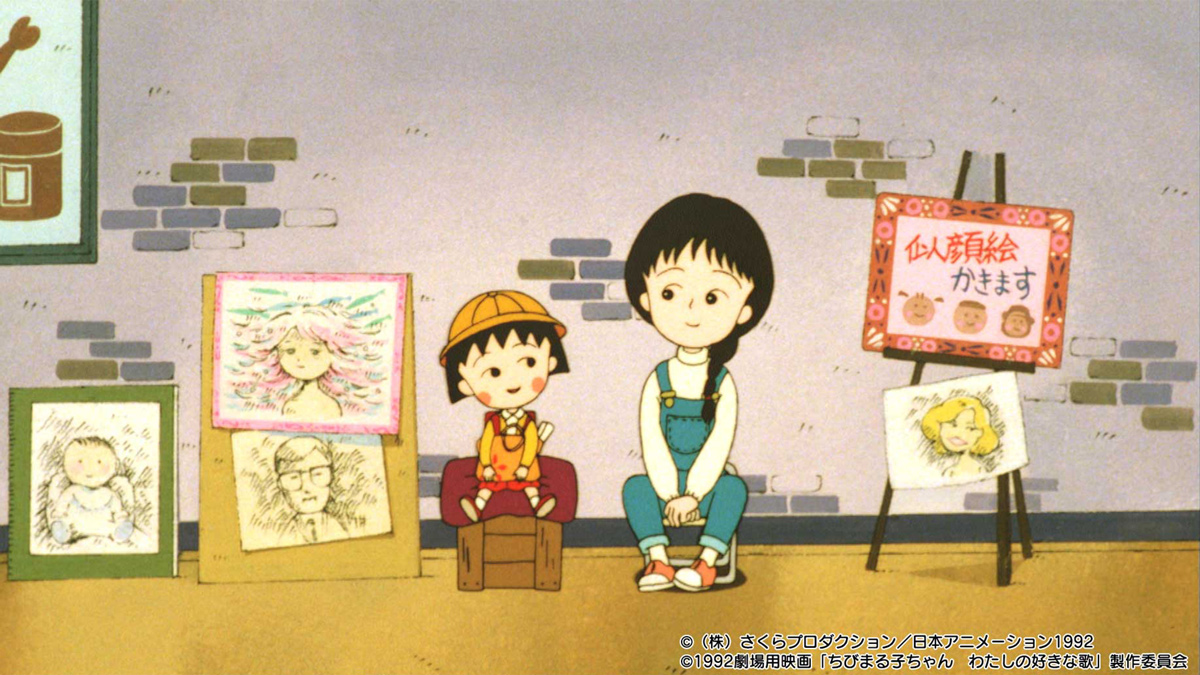
(C) Sakura Production Co., Ltd./Japan Animation 1992 (C) 1992 Theatrical movie “Chibi Maruko-chan: My Favorite Song” Production Committee
“Chibi Maruko-chan: My Favorite Song” What’s in the legendary music anime, Part 2
What is the curse of “marriage” in the Showa era?
So why not think of this work as a ``movie depicting the Showa era''? The Working Women's Welfare Act, the predecessor of the Equal Employment Opportunity Act, was enacted in 1972. It was a time when women were still not recognized as working members of society, and it was common sense that women should get married and start a family and be happy.
When you read Momoko Sakura's essay, you can understand what she and the people around her thought about women's marriage in the 1970s. For example, in `` Hitorizumou, '' a book in which he reminisces about his adolescence as a junior high and high school student, there is a passage like this, in which he thinks about ``a decent life'' as an 18-year-old.
``I entered a local junior college on recommendation, studied there for two years, fell in love during that time, looked for a job, got a job at a local company, worked as an office lady despite being scolded by my boss, got married, and left the company. Isn't it okay to live a life where you become a housewife, build a happy family, and die peacefully when you get old? There's nothing wrong with that kind of life, right? As long as you get married, you don't have to take over the greengrocer's business. Now, all you have to do is work hard to have a harmonious family and live your life as a cheerful wife.'' (pp. 181-182)
There is also a manga version of `` Hitorizumou '' drawn later, and the lines in that version are as follows.
“I…I’m worthless…If I don’t get a job, I have to go to higher education.
Then I need to get a job at a serious company, marry a serious person, and live a decent life...
(snip)
We bought a house in Shizuoka City with a 25-year loan, and my husband and I go out about once a week.
I go to Hawaii with my family two or three times in my life.
That's good! It's not bad at all. I've finally woken up clearly now. ”
(Vol. 2, pp. 114-115)
The author, who is of the same generation as Momoko Sakura, knows a time when the values described here were taken for granted. Of course, there were quite a few people who lived exceptional lives, but it was a kind of common sense that bound the thinking of ordinary people.
In the manga version of `` Hitorizumou '', Momoko Sakura, an adolescent who is still unsure of her values, is told by her parents that ``I just want you to lead a decent life'' and ``A normal life is best.'' . In the first volume, there is a scene in which high school student Momoko Sakura wishes, ``Maybe my dreams won't come true, but I hope I can somehow have a happy future.''
Depending on how you look at it, the casual words of parents can be seen as a curse, unknowingly instilling in women a sense of resignation and imprinting the values of their predecessors. In ``My Favorite Song,'' Maruko unconsciously forces the ``happiness of entering the house'' on her older sister, which is not unrelated to the atmosphere of the Showa era.
Lily of the valley flowers added for the movie

